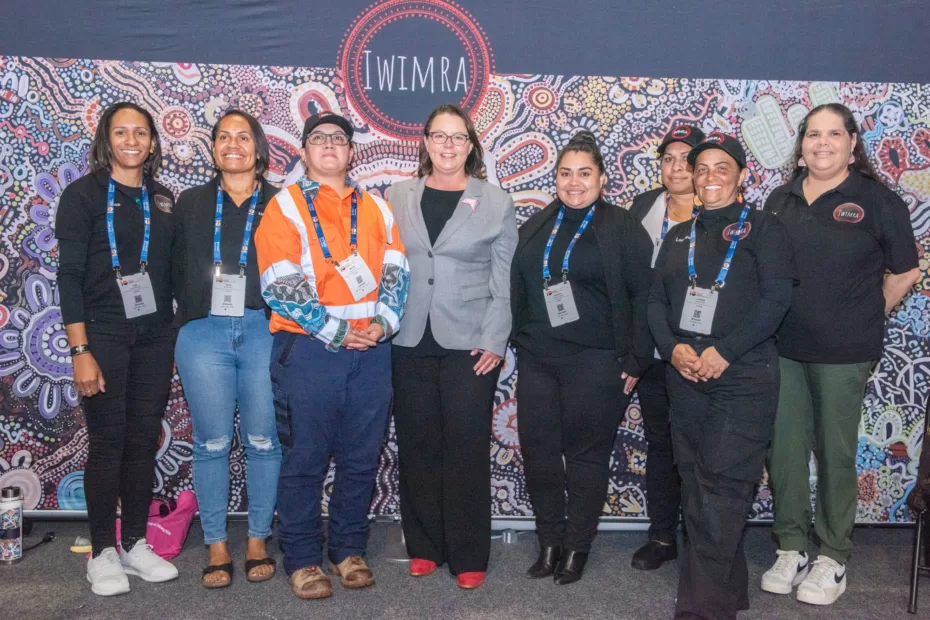Australia’s Minister of Resources and Northern Australia, Madeleine King, has urged the global multi- billion-dollar mining industry to actively ensure representation of indigenous people.
The Minister who kicked off the conversation, reiterated the Federal Government’s commitment to foster meaningful partnerships with First Nations peoples.
“More than 60% of Australia’s resources projects operate on land covered by a claim. On the other hand, other projects have affording rights and interests to indigenous people.
Our new critical minerals strategy sets a vision for how Australia can become a globally significant producer of Minerals. These can raw and processed critical minerals. Australia can also boost economic opportunities for First Nations people and across regional communities,” King stated.
Facilitating the panel discussion about:
“Recognising First Nations and Developing Better Indigenous Partnerships that Support Shared Prosperity,
ICMM Director Danielle Martin started by acknowledging how mining has impacted, often negatively, on Aboriginal people.
“Indigenous people in Australia have been affected by the long-term consequences of colonization and the disposition of land
Companies need to be thinking deeply about recognition and reconciliation, how we better incorporate Indigenous skills and knowledge into the mining industry, how we make agreements, how we share benefits and how we protect cultural heritage,” Martin stated.
The 2023 Australian Indigenous Voice referendum became an unsuccessful constitution event held on 14, October 2023. The referendum was about altering the constitution to allow recognition of indigenous Australians.
Australia’s outcome of The Voice Referendum has unveiled a gap in understanding the benefits of better integrating First Nations people into critical industries like mining.
Speaking during IMARC event, First Nations leaders from around the world acknowledged a growing recognition of the importance of fostering diversity and inclusion.
However, skills and perspective into everyday practices can be embedded into indigenous knowledge.
This year’s IMARC event has seen the largest-ever delegation of First Nations leaders and the most comprehensive program of presentations, panels and exhibitions.
Also Read: Mining industry on the right ESG path – but more work to do, IMARC told
Where are we coming from?
Strategic Advisor to the First Nations Major Project Coalition JP Gladu said it was important to note that every country and its relationships with Indigenous people is moving at a different pace.
“As a Canadian First Nations person, I can say that we’ve come a very long way when it comes to our relationships with the land, the government and industry.
Not that long ago, Indigenous people struggled to get jobs in Canada. Currently, anyone who is qualified and ready to work has employment,” Mr. Gladu said.
He further added that all paths to net-zero run through the traditional territories of our communities. Likewise, Indigenous people play a really integral role in industries like mining.
Australia National First Nations Talent Acquisition Manager at Ernst & Young, Christina Coleman, said the relationship between mining and Indigenous communities is relatively precarious.
“When things go wrong between Indigenous communities and the mining sector, they can go really wrong. Breakdowns in communication can be disastrous. These can happen when there is no understanding on each party’s concerns can have a long-term detrimental impact on our people,” Ms. Coleman said.
Also Read: 10 Years of IMARC: Australia Hosts Biggest Mining Event
Looking into the future
The Panel also heard that some of Australia’s largest mining companies are adjusting their First Nations employment. The are also engaging strategies to take into consideration the shared knowledge.
At the same time they are looking for opportunities on the table to take the industry to the next level.
Head of Global Indigenous Procurement at BHP Chris Cowan confirmed that it is critical for companies to have a genuine focus. They also need commitment to deliver sustainable change.
At the same time, its critical for companies to have the willingness to engage in meaningful conversations with Aboriginal people.
“At BHP, we’re not just sitting around a table in a boardroom. We are coming up with what sounds like a good strategy to guide our engagement with First Nations people.
We are getting out into the communities and having sincere and empathetic conversations with Aboriginal communities to make sure what we’re planning on putting into practice will actually work,” Mr. Cowan stated.
Independent Non-Executive Director Vanessa Elliot said Aboriginal people in the industry can’t just be ‘pop up’ experiences at conferences. They should be embedded in all aspects of mining.
“Aboriginal people’s knowledge of the land is revolutionary to the mining industry. We are game-changers,” Ms. Elliot stated.


